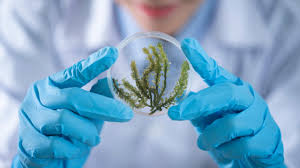Imagine this: you wake up in a world where everything runs smoothly, your phone is charged, the lights are on, and your favorite music plays in the background. But behind this comfort lies a complex web of energy consumption that shapes our planet’s future. Understanding energy consumption is crucial—not just for scientists and policymakers, but for you as a young adult stepping into a world where every choice can make a difference.
What is Energy Consumption?
At its core, energy consumption refers to how much energy is used by people, industries, and devices. It includes everything from heating your home to powering your smartphone. But it’s not just about how much energy we use; it’s also about where that energy comes from. The main sources are:
- Fossil Fuels: Oil, coal, and natural gas. These are the traditional energy sources that have powered our world but come with significant environmental costs.
- Renewables: Solar, wind, hydro, and geothermal energy. These sources are cleaner and more sustainable, but they still face challenges in terms of infrastructure and accessibility.
Key Terms to Remember:
- Fossil Fuels: Non-renewable energy sources that emit greenhouse gases.
- Renewable Energy: Sustainable sources of energy that have a lower environmental impact.
Why Does It Matter?
1. Environmental Impact
Energy consumption is directly linked to climate change. Burning fossil fuels releases carbon dioxide (CO2) into the atmosphere, leading to global warming. If we don’t change our energy habits, we risk:
- Increased natural disasters (hurricanes, wildfires)
- Loss of biodiversity
- Poor air quality affecting health
2. Economic Consequences
The way we consume energy can also impact your wallet. As fossil fuel resources dwindle, prices can skyrocket, affecting everything from gas for your car to electricity for your home. Transitioning to renewable energy sources can lead to:
- Job creation in new industries
- Lower energy costs in the long run
- Economic stability by reducing reliance on volatile fossil fuel markets
3. Technological Advancements
By understanding energy consumption, you can tap into exciting technological innovations. Think about electric cars, smart homes, and energy-efficient appliances. Learning about these advancements prepares you for careers in emerging fields like:
- Renewable energy engineering
- Environmental science
- Sustainable business practices
4. Personal Responsibility
Every choice you make contributes to energy consumption. Here’s how you can take charge:
- Educate Yourself: Learn about your local energy sources and how to reduce consumption at home.
- Make Sustainable Choices: Use public transport, invest in energy-efficient appliances, and support renewable energy initiatives.
- Spread Awareness: Share what you learn with friends and family. The more people understand, the more change we can create together.
Building Knowledge for a Sustainable Future
Understanding energy consumption is more than an academic exercise; it’s about equipping yourself for the future. The world is changing, and as a young adult, you have the power to influence that change.
Action Steps:
- Research: Dive deeper into energy consumption and its impacts. Use reliable sources, documentaries, or local workshops.
- Engage: Join community groups focused on sustainability. Networking with like-minded individuals can inspire new ideas and solutions.
- Practice: Implement what you learn in your daily life. Start small—turn off lights when not in use, use reusable products, or switch to a renewable energy provider if possible.
Final Thoughts
Energy consumption shapes our world, our economy, and our environment. By understanding its intricacies, you not only prepare yourself for a successful future but also become part of the solution to some of the biggest challenges facing our planet today. Embrace this knowledge; it’s your key to making a difference!


